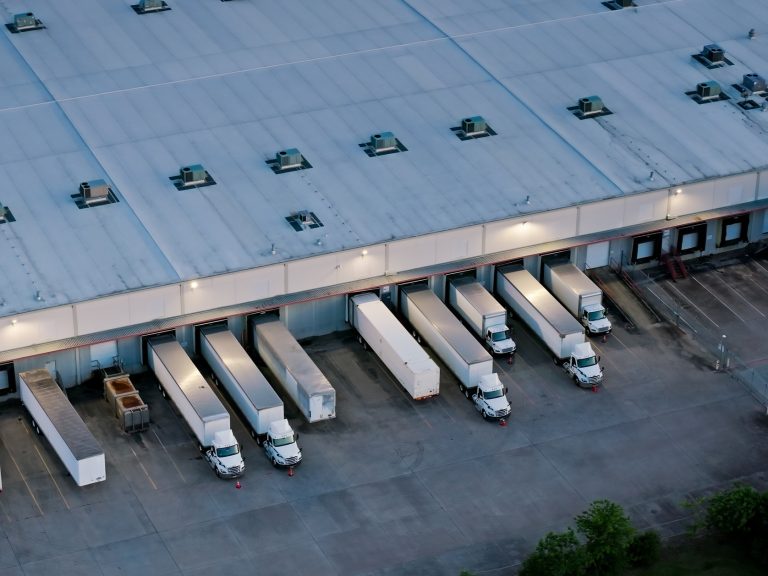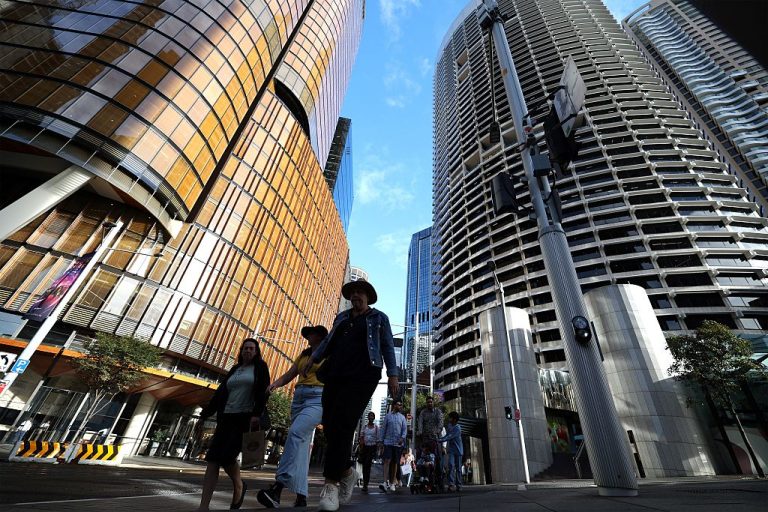How to invest in commercial property

Commercial property’s strong income returns and high yields attract investor newcomers.
But along with these gains can come financial stumbling blocks.
Experts highlight the importance of understanding the industry back to front, including conducting abundant research and gaining a good understanding of how the economy affects commercial property.
What are the pros and cons of commercial property investment?
Commercial property can offer both gains and risks, but even COVID hasn’t quashed investor interest in the market.
“There is a huge appetite for commercial property, even through this period of COVID where we have had a much greater level of uncertainty than normal,” Knight Frank chief economist, Ben Burston said.
He explained that while commercial property values have grown by a similar amount to residential, the latter market has shown greater volatility over time.
As for returns, Mr Burston said according to US financial company, MSCI, Australian industrial properties enjoyed an average total return of 12.3% in the past decade.
The same report revealed office premises experienced 10.8% returns with retail third in line at 6.4%.

Bring your new commercial investment to life with smart advice and research. Picture: Getty
What are the disadvantages of commercial investments?
Commercial investments require a far larger deposit than residential loans with tenants also more difficult to acquire.
Higher deposit than residential properties
Lenders will only lend up to 70% of a commercial property’s value, while the interest rate is also usually higher than residential, varying from 0.5%-0.75%, according to Metropole CEO and founder, Michael Yardney.
“Banks perceive more risk with commercial property, with these risks usually being long periods of vacancy and no income coming in,” Mr Yardney said.
He added that a reliable cash flow was necessary to keep the income rolling in during such times.
Tenants more difficult to secure
Mr Burston said finding a new tenant wasn’t as easy as finding a residential one.
“The residential rental market is very deep and liquid and there are loads of tenants …. but it can take a little bit longer in commercial markets as there are not as many tenants,” he said.
“So, you’ve got to manage the building to ensure that it continues to be let and offer you that income return and also, to manage the risk of vacancy because obviously, that erodes the return pretty quickly.”
Understanding the economy as a whole
“For commercial real estate, you need a different amount of research (than residential real estate), plus you’ve got to know about the economy and how it will affect various sectors of the commercial property market,” Mr Yardney said.
“After all, your tenants are basically businesses that depend upon the economy.
“You also need to understand about commercial leases, which are more complicated and are usually prepared by a solicitor and not by a real estate agent.
“It’s useful to understand tax, finances and anything else that’s changing in the community.”

Solicitors are crucial when it comes to starting a commercial property investment. Picture: Getty
What are the benefits of commercial investments?
Limited management and good outgoings are among the positives of having a commercial property investment.
Less administration than residential properties
With a commercial property also being a tenant’s business space, they were happy to ensure it looked its best, Mr Yardney said.
This in turn ensured the property was far less management intensive, which was a definite advantage.
“Tenants tend to look after the premises so they will repaint them, do up the shop front and the fit-out inside, which of course won’t happen in a residential property,” Mr Yardney said.
Limited outgoings compared to other investments
Commercial tenants pay for all property outgoings, including rates, taxes, insurance and more, according to Mr Yardney.
“So, in other words, the income is almost all yours, as opposed to having to pay a lot of outgoing finances,” he said.
What should I look for in a commercial property?
A good location is just as significant to commercial properties as it is to residential.
There’s also a range of particular selling points you can check.
Location is crucial
Investors should look for a location attracting strong interest from both investors and tenants.
This will ultimately result in a property enjoying continual success, according to Mr Burston.
“You want a location where there’s a depth and frequency of trading within the market, and you want a strong level of activity, both in terms of business activity but also commercial market activity,” he said.
“It’s inherently more uncertain if you’re looking at locations further away from the main commercial node.
“By nature, these can be less frequently traded with less leasing activity going on, so you’ll have to manage your risk more carefully.”
Key property selling points
Doing abundant research is crucial, Herron Todd White commercial director, Alistair Weir, said.
“Read commercial news websites and read information memorandums to see what a property’s key selling points are,” he said.
“Also, talk to valuers, agents and property managers, and make sure you identify growth areas.”

Increasingly popular warehouses and storage areas should always be close to freeways and have easy entry and turning space for trucks. Picture: Getty
Property types and how they differ
These assets may differ according to the sector in question but their fundamentals such as location and nearby amenities will always enjoy popularity.
What is important to industrial facilities?
Warehouses, in particular, should be located close to freeways to ensure easy, swift transport of goods and be close to a population hub to ensure equally straightforward commutes for employees, Mr Yardney explained.
“You’re going to want big wide spaces for pallets and containers, high easy entry and easy turning for trucks, and parking on site for the staff because warehouses aren’t usually near public transport,” he said.
“You’ll also want nearby amenities and property flexibility, so you can use a portion of the area as office space.”
What do office spaces require?
Investors should be cautious when buying office space, mainly as many people now work remotely from home with flexible hours, according to Mr Yardney.
However, he believes specialised properties such as childcare or medical health centres could be a better answer, with vets, doctors, accountants and similar people usually renting for a long period of time and often found at the edge of large retail centres.
“But if you buy a specialised building, such as one that only suits childcare, you’ll want a higher yield and return because when it becomes vacant, you’re not going to have as many options,” Mr Yardney said.
What is essential for retail areas?
“The landscape for retailing is changing at the moment, with more online shopping, and habits have changed because of COVID and are likely to continue,” Mr Yardney said.
“So, you’ve got to be careful and invest in a strong retail location where there’s a lot of foot traffic.”
Mr Burston concurred, adding that transport connections were crucial for retail investors.
“You want to be reasonably well established with a predictable pattern of customer demand,” he said.
Retail properties should also be prominent, well exposed and easily accessible, Mr Weir said.
“Is the building clean and well maintained and are the tenants strong and well known?” he said.
“For multi-tenancy properties, are there any vacancies and if so, how long have these tenancies been vacant?”

Abundant foot traffic is critical when it comes to a successful retail property. Picture: Getty
How do I buy commercial property?
There are three main ways to snap up a great commercial investment with Expressions of Interest (EOI) one of the most popular.
Expressions of Interest (EOI)
With an EOI, potential investors submit a sales bid in writing to the agent by a specified date and time.
This bid is then submitted to the vendor who will either accept the offer or decide to place the property back on the market.
Mr Yardney said he had several concerns with EOIs including the fact that it wasn’t transparent and that it could see investors paying more than was needed, with agents sometimes using them to draw out interest.
“Agents are not going to tell you what they want, but they do want you to expose your hand first,” he said.
He also dislikes the possibility of investors often having only one chance to bid.
“I don’t like that sort of expression of interest but I’m comfortable with the other where the agent says, ‘give us a bid, show us you’re interested in the property, and we’ll have a little internal auction’,” he said.
“So, you have to understand what the rules are because there are no fixed rules with EOIs.”

Offices aren’t what they used to be, with many people working from home, but specialised properties may be the next best thing. Picture: Getty
Auctions
“This is the most transparent way to sell,” Mr Yardney said.
“You can see who else is bidding, what their body language is, and what they’re doing, and at least you know what’s going on.”
He added that some specialist real estate agencies bought several properties together and sold them through a major auction event once a quarter.
“They have them all (the properties) effectively in an auction room and do a wide range of auctions where emotion is high,” Mr Yardney said.
“I’ve tended to see people overpaying considerably at these events.”
Private sale
The majority of commercial properties are now being offered this way, Mr Yardney said, and usually by real estate agents who specialise in commercial property.
How do I start my search for commercial property?
Firstly, find properties to enquire about by inspecting what’s available in different areas and states.
The realcommercial.com.au website offers a state by state search tool for perspective investors.
How do I find tenants for commercial properties?
Look for an experienced commercial real estate agent who is local to the area where you plan to buy a property.
They’ll be able to advertise your property for lease and also reach out to their contacts directly.
You can use the realcommercial.com.au agent finder search tool to find such agents near you.







